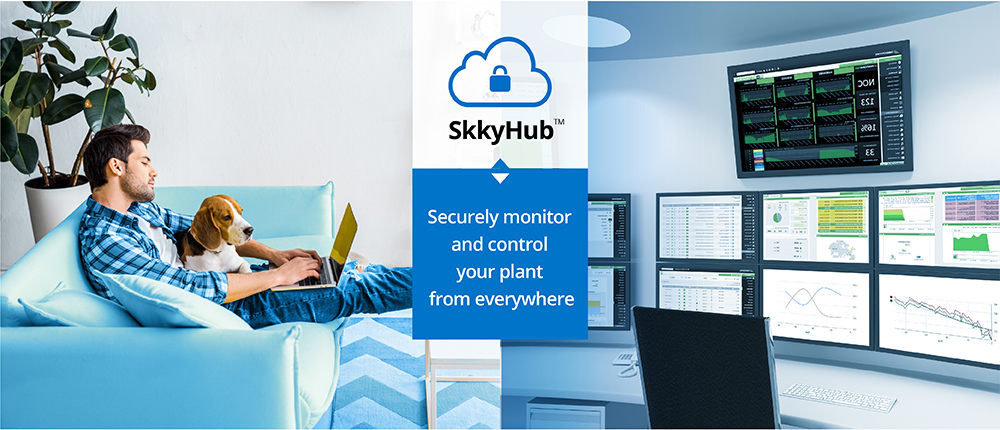Working Remotely to Stop Coronavirus
Companies using Skkynet software and services expect high security for their data communications. They know they can stop computer viruses by keeping all inbound firewall ports closed. Now, with the coronavirus looming large we must do pretty much the same thing in real life. We need to keep our distance and stay behind physical walls as much as possible. And yet work must go on. The data must get through. We need to work remotely, if possible.
The problem is, logging in remotely can be risky. Typically, you need to expose your servers via the web or a VPN―and that’s a risk that our industrial control customers cannot take. They need tighter security, to access to their process data without exposing the process servers and networks. Skkynet’s unique tunnelling technology provides this kind of secure access. It lets users securely push data from their plants to our SkkyHub service, where they can access it in real time, all without opening firewalls to the outside world.
A Helping Hand
We are now offering this service at no cost to help our customers weather the coronavirus storm. For the next three months any DataHub user can connect to SkkyHub free of charge. A simple tunnel connection provides a way to access data remotely, even through DMZs and proxies. The SkkyHub service includes a web-based interface, SkkyHub WebView, that lets people build dashboards to access their data and interact with their systems from home. Those who are new to WebView can quickly get up to speed, designing pages through its web interface. With SkkyHub, users can view and operate their control systems remotely as quickly and easily as being right in the control room.
Let’s face it. These are not easy times. Some factories have been forced to shut down, and restarting will be difficult, as Matthew Littlefield at LNS Research explains in this blog, Closing Factories is Hard, Re-Opening will be Harder. Remote access can alleviate these problems to some degree, but it must be reliable and above all, secure.
In another blog, Coronavirus Lessons for Industrial Cybersecurity: Quarantines, Sid Snitkin at ARC Advisory Group compares quarantines for coronavirus to securing industrial systems, and suggests, “Use DMZs, firewalls, zero-trust access control, anti-malware software, awareness training, and security hygiene to reduce the likelihood of an initial compromise.” He also recommends system segmentation to limit lateral movement of viruses, continuous device and system monitoring, and strengthening tools to prevent future attacks.
Doesn’t that sound a little like social distancing, washing hands, not travelling, and keeping our immune systems strong? The social structures we have developed throughout history and the technical systems we have built recently are not as different as we might imagine. They both can serve us well, but we need to protect them and keep them, like ourselves, in good health.







